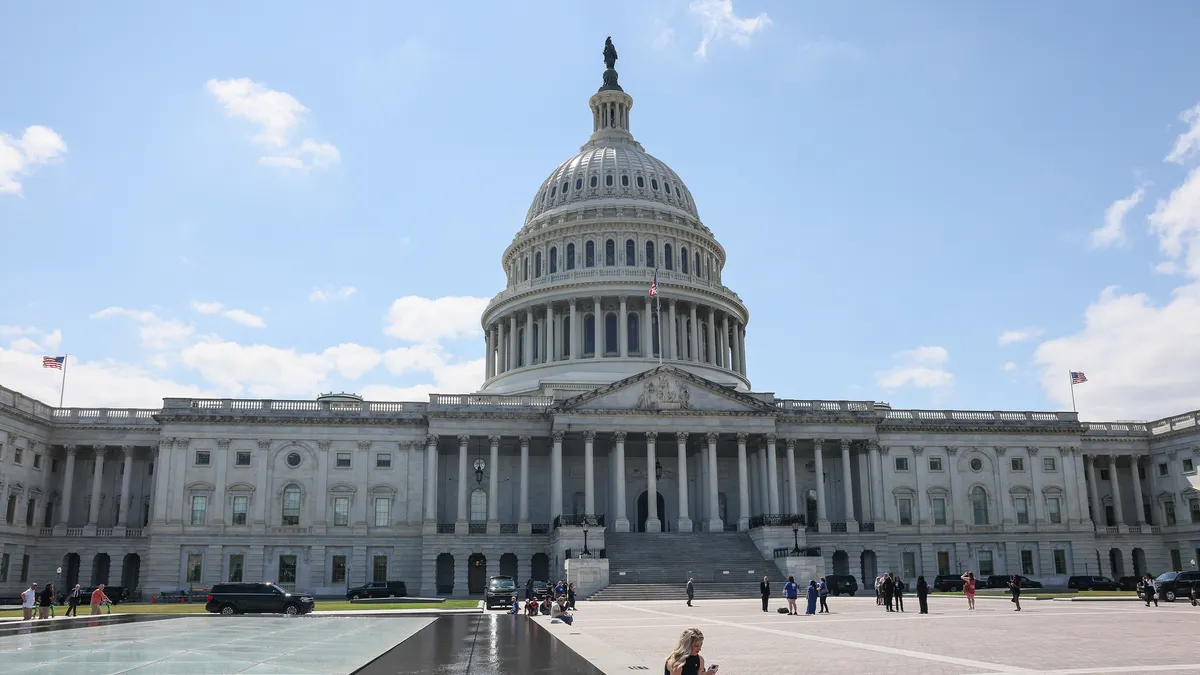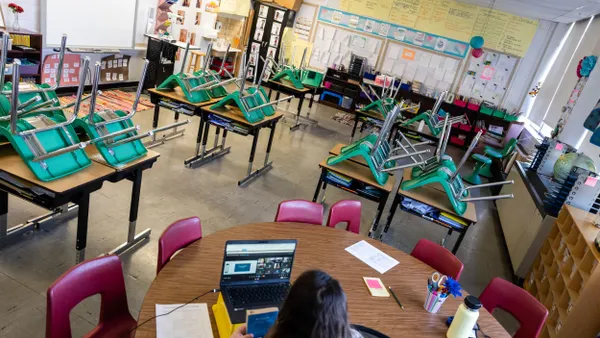Dive Brief:
- Republican and Democratic senators agreed that improving teacher pay is a bipartisan matter during a hearing held Thursday by the U.S. Senate Committee on Health, Education, Labor and Pensions. Lawmakers and witnesses also stressed the need to address declining student achievement due to pandemic-driven learning loss as teacher shortages persist.
- Sen. Bill Cassidy, R-Louisiana, said spending on education has outpaced inflation despite math and reading score declines. Cassidy also expressed hesitancy to use federal funds for a teacher minimum wage like the one outlined in the Pay Teachers Act introduced by Sen. Bernie Sanders, I-Vermont, which would require a minimum national salary of $60,000 for teachers.
- Several witnesses testified about their own experiences as teachers and weighed in on solutions to educator shortages, including teacher raises, grow-your-own programs and accessible early childhood education programs. Other witnesses, however, said raising pay alone will not do enough to improve recruitment and retention.
Dive Insight:
Throughout the Senate hearing, witnesses and senators explored if there are ways at the federal level to address teacher shortages and low teacher pay.
William Kirwan, the vice chair of Maryland’s Accountability and Implementation Board, explained during testimony how a statewide education plan known as the Blueprint for Maryland’s Future is working to recruit and retain its teachers. The blueprint passed in Maryland’s General Assembly in 2021 and will increase education funding by $3.8 billion annually over the next 10 years.
Under the blueprint, all teachers in the state must be paid a starting salary of $60,000 by July 1, 2026, Kirwan said. On top of that, teachers can receive another $10,000 annually if they are certified by the National Board for Professional Teaching Standards, as well as an additional $7,000 per year if they work in schools that serve students in high-poverty communities.
“With the blueprint, teachers could earn a six-figure salary after a half-dozen years in the profession," said Kirwan, adding a national survey shows that Maryland led the country in the increase of students entering teacher preparation programs.
After participating in a grow-your-own program in the School District of Philadelphia to become a full-time special education teacher, Gemayel Keyes said it’s crucial that federal investments make similar programs a priority for funding. Keyes worked as a paraprofessional for the majority of his 18-year career and just completed his first year of teaching.
Keyes noted that paraprofessionals in his district only earn between $16,000 to $30,000 a year. During that time, he also worked a second job because it was difficult to survive on a paraprofessional salary, Keyes said. But with the help of a Para Pathway program in the district, Keyes was able to attain the necessary degrees cost-free to become a special education teacher and earn a higher wage.
Robert Pondiscio, a senior fellow in education policy at the American Enterprise Institute, spoke from his experience as a former public school teacher in New York’s South Bronx, noting that higher teacher pay will not remedy other factors that lead to teacher shortages and burnout.
There are “deteriorating classroom conditions, shoddy curriculum, and quality therapeutic roles teachers are now expected to play in addition to their core academic roles,” Pondiscio said. “Bluntly, we are asking teachers to do too many things for them to do any of them well.”
Cassidy also raised questions about restoring public trust in education when federal spending increased alongside declines in test scores. He noted that 10 out of the 11 states that passed laws this year to raise teacher pay were through Republican legislatures.
“But the federal government dictating how states spend their money does not address the root cause of why teachers are struggling to teach in the classroom,” Cassidy said. “More mandates and more funding cannot be the only answer we come up with.”
But Sanders maintained his push for a $60,000 starting salary for teachers nationwide.
“If kids are going to get a good start to life, open the doors. Let’s have decent-paid teachers, and let’s not worry about the cost of that,” Sanders said. “Because we’re going to save money long-term if these kids do well in school.”
The hearing comes as more research reveals that teacher compensation falls short by an average of $18,000 in base pay when compared to other professionals, according to a Rand Corp. report.













